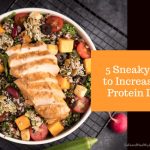Excess consumption of fats, especially unhealthy ones, has been associated with increased weight and percentage of body fat. Fat and salt are a common combination in foods like potato chips, some cheeses, different fast foods, sausages … In this case, we do not talk about the addition of salt to typical homemade meals as a mandatory part of the recipe.
When the salt is added to the food, it increases the palatability of these, which consequently leads to a greater intake of the same if you do not have enough control. On the other hand, the role of fat in palatability and food intake does not always lead to increased enjoyability. Recently, the idea that food addiction seems to depend on salt or sugar combinations rather than changes in fat content has been growing.
Thus, in following a healthy diet, those who opt for a flexible path to achieve their goals, should know that changes in sensitivity to fat taste can also occur in as little as 4 weeks, finding that people who are more Sensitive to fat taste have stronger satiety responses by modifying their diet towards a high-fat than those with less sensitivity to the taste of fat.
You have to follow some tips to increase your fat intake. There is a common secret between more salt, more pleasure, more calories, and more stored fat!
Salt increases food intake and energy by 11% regardless of the fat concentration of meals. The addition of salt but not fat increases the pleasantness (hedonic response). In other words, the overall effect of the salt leads to excessive fat consumption, so the salt negates satiety mediated by fat in general, but particularly in fat-sensitive individuals.
In real life situations, high-fat diet foods are most likely to be accompanied by a salty or sweet taste, disguising the food’s own taste, which would not be as enjoyable as combined with those others. Serve as an example the natural nuts VS salted, natural popcorn VS salted or even canned tuna with salt VS without salt … which ones are tastier and more pleasant?
Of course, products such as sausages or fatty cheeses are noteworthy in this section because of their high salt and fat content. One of the conclusions that lead to these results is that if they should already be included in the diet very occasionally because of their high caloric density and fat percentage, those who carry added salt makes them more dangerous To control their intake (example: salt less sausage would be less addictive than salt sausage).
CONCLUSIONS
Salt plays an important role in the excessive consumption of fat in the diet, which consequently increases the total caloric intake. Appetizers, products, and foods high in salt should be very carefully chosen as an option because not only is the typical rise in blood pressure attributed to salt problematic, but it can also induce a vicious cycle of fatty foods.




